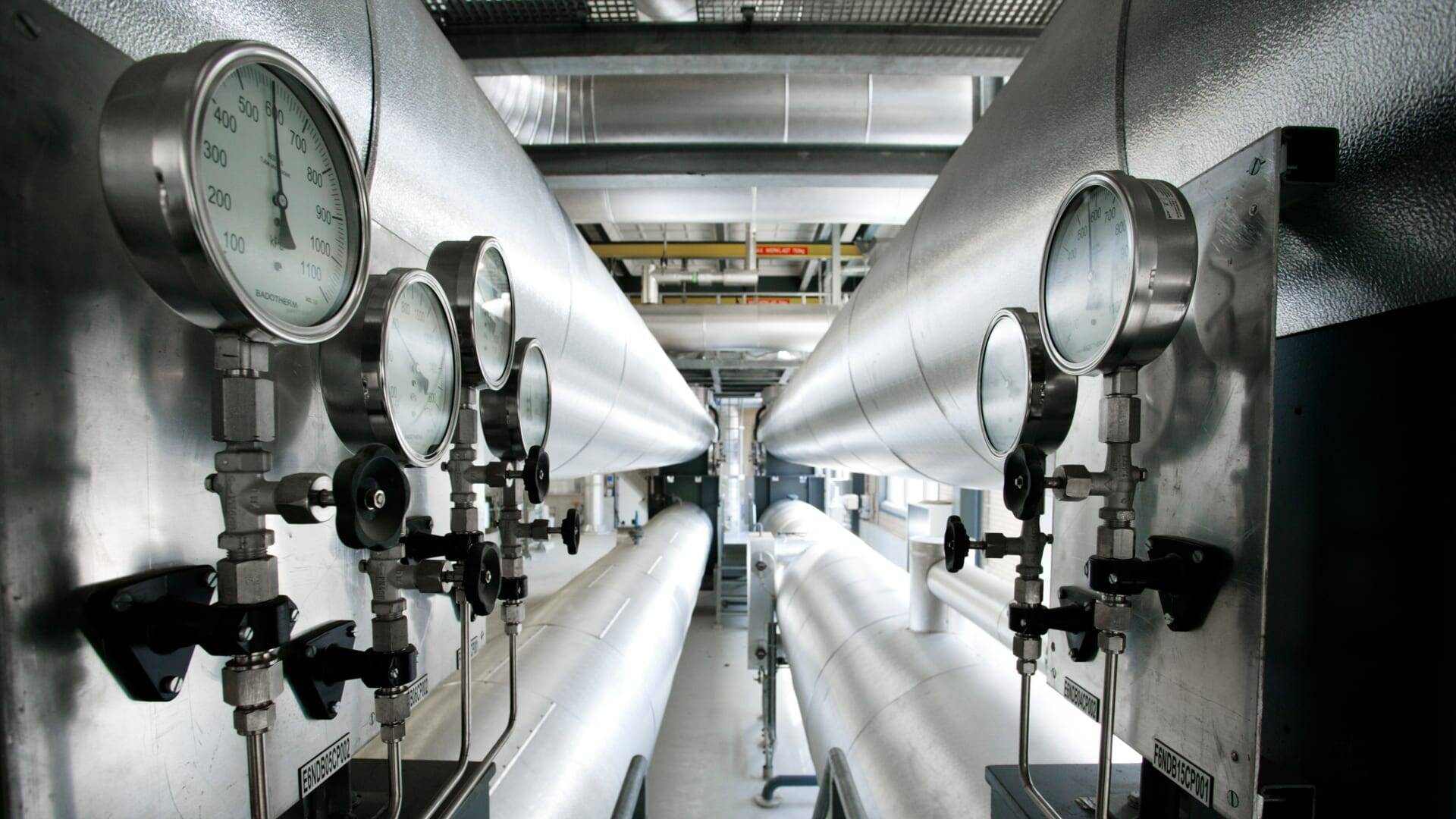You’ve reached your limit!
To continue enjoying Utility Week Innovate, brought to you in association with Utility Week Live or gain unlimited Utility Week site access choose the option that applies to you below:
Register to access Utility Week Innovate
- Get the latest insight on frontline business challenges
- Receive specialist sector newsletters to keep you informed
- Access our Utility Week Innovate content for free
- Join us in bringing collaborative innovation to life at Utility Week Live

Following Utility Week’s Future of Heat conference and further calls to double down on heat network innovation, Utility Week Innovate explores a number of recently funded projects to exploit ground, mine water, air, water and sewer sources.
Current estimates of the heat networks pipeline in England and Wales exceed £1.5 billion – more than double its 2018 value according to figures from Triple Point Heat Networks Investment Management.
This has been driven in part by funding for a raft of low carbon heat network schemes under the government’s Heat Networks Investment Project announced in December, bringing the total amount awarded via the four-year scheme to more than £250 million.
On top of this, in early March it was announced that the Department for Business, Energy and Industrial Strategy (BEIS) had named Triple Point Heat Networks Investment Management as delivery partner for its three year, £288 million, Green Heat Network Fund (GHNF).
The group – which comprises Triple Point Investment Management, AECOM, Amberside Advisors, Asteros Advisors, Lux Nova Partners and Gemserv – had previously been selected to deliver HNIP.
Open to public, private and third sector applicants in England from March 2022 until at least 2025, the GHNF seeks to build on this progress, support the commercialisation and construction of new low and zero carbon heat networks, and fund the retrofitting and expansion of existing projects.
As highlighted by Gemserv’s head of low carbon solutions, Matthew Knight, at Utility Week’s Future of Heat Conference, no “single solution” will be able to meet the diversity of UK demand meaning the industry needs to support as many emerging technologies as possible. “We need more of everything,” he explained – something recent funding schemes appear to acknowledge.
With the utilities sector challenged to identify economic sources of low carbon heat, speed up existing trials and double-down on innovation, according to Knight, Utility Week Innovate highlights some of the standout examples of ground, mine water, air, water and sewer source heat network projects that have been backed thus far.
Gateshead District Energy Scheme
 Part of Gateshead Council’s ambitions to be net zero by 2030, the Gateshead District Energy Scheme builds on the opening of the Gateshead Energy Centre in 2017. HNIP funding will see the installation of a 6MW mine water source heat pump, adding geothermal heat into the network, displacing gas boiler generated heat and reducing the operating hours of the network’s existing 4MW gas combined heat and power (CHP) engines.
Part of Gateshead Council’s ambitions to be net zero by 2030, the Gateshead District Energy Scheme builds on the opening of the Gateshead Energy Centre in 2017. HNIP funding will see the installation of a 6MW mine water source heat pump, adding geothermal heat into the network, displacing gas boiler generated heat and reducing the operating hours of the network’s existing 4MW gas combined heat and power (CHP) engines.
Following its expected completion in 2022, the Gateshead network will deliver 1,300t CO2 savings per year over the first 15 years according to Triple Point Heat Networks Investment Management, and supply lower carbon and lower cost heat to Gateshead Quays Arena and Conference Centre as well as 270 new private homes.
“Mine energy would seem to be ideally suited to district heating,” Ken Hunnisett, project director at Triple Point Heat Networks Investment Management, says of the project. “At a time when we have great cause to reflect on our domestic resilience, the ability of our coalfields to provide clean, affordable, perpetually renewing heat should be a source of great national pride.”
Seaham Garden Village
Similarly, Durham County Council was awarded £3.8 million under HNIP to build a low carbon network in tandem with the Coal Authority to harness geothermal heat from former coal mines and distribute it to Seaham Garden Village – one of 19 developments of between 1,500 and 10,000 homes to be awarded garden village status in the summer of 2019.
The mine water is heated by geological processes providing a stable, perpetually renewing, zero-carbon heat resource that can be transferred to a pipe network using a heat exchanger and distributed to nearby homes and businesses.
Seaham Garden Village will be completed in several phases over the next decade with the final phase to begin by 2030. When complete, the heat network is forecast to supply more than 1,500 homes, a school, and a health centre with affordable low carbon heat and support the creation of green jobs in the area.

Swaffham Prior Heat Network
Touted as a blueprint for weaning rural communities off of oil heating, the Swaffham Prior Heat Network scheme began in 2018 when the Swaffham Prior Community Land Trust – a residents’ group seeking to provide affordable housing in the village – approached Cambridgeshire Council to collaborate on a community heat network scheme.
Ultimately, plans for a community heat network using ground source heat pumps and boreholes to extract heat from some council-owned land on the edge of the village were set into motion and backed by both grant funding through the Heat Networks Delivery Unit and more than £3 million through the HNIP.
To serve the 300-strong village, 130 boreholes – each 200 metres deep – will be drilled to extract naturally occurring heat from the ground. These will be supplemented by an air source heat pump, with both technologies to be powered by solar panels.
It’s anticipated that the first homes will be connected in early 2022.
Mersey Heat Network
 Initially designed based on gas CHP generation, Peel NRE Developments – part of Peel L&P – was awarded £6.2 million HNIP funding to ensure that its Mersey Heat Network transitioned to a heat pump-based scheme instead.
Initially designed based on gas CHP generation, Peel NRE Developments – part of Peel L&P – was awarded £6.2 million HNIP funding to ensure that its Mersey Heat Network transitioned to a heat pump-based scheme instead.
Once complete, the network will provide low carbon heat and hot water to up to 9,000 homes and 4 million sq. feet of commercial space at Peel L&P’s £5 billion Liverpool Waters development and nearby buildings.
Announced in December 2021, the funds will support the use of one of two 3MW low-carbon heat pumps – the first of which will be water source heat pump.
Worthing ‘sewer heat’
Worthing Borough Council was awarded in excess of £5 million in December 2021 to develop a heat network using a centralised 3MW heat pump to capture heat passing through sewers beneath the West Sussex town’s high street.
The use of ‘sewer heat’ to replace gas boilers follows the discovery that Worthing’s sewers contain more than enough heat to replace gas boilers.
The scheme will therefore support the council’s pledge to become carbon neutral by 2030 by replacing gas boilers in 27 buildings and saving an estimated 2,454t of CO2 annually.
HNIP funding in excess of £5 million will cover preparatory work, initial construction and the appointment of a private sector partner to help finance, design, build, own and operate.

Notting Dale Heat Network
Kensington and Chelsea Council was awarded more than £1.1 million to develop a new zero carbon heat network in December 2021.
Using air source heat pump technology, the Notting Dale Heat Network will provide heat to a number of local public buildings and business units as well as 826 North Kensington homes. Some 80% of these homes are currently heated by two heat networks that are more than 40 years old, with the remainder using individual combi-boilers and gas CHP.
The borough’s first low-energy pilot home has been completed and is the first to generate its own green power and heat through solar and an air source heat pump.

The network, which will be zero-carbon from 2030 in support of plans for the London borough to be net zero by 2040, is expected to deliver carbon savings of around 790t per year over its first 15 years.
What’s more, to complement air source heat pumps, project leaders are also investigating the use of sewer source and ground source heat pumps to provide a mix of renewables.
See this content brought to life at Utility Week Live, 17-18 May 2022 NEC Birmingham. FREE to attend for utilities. Register today
Decarbonising heat is one of the frontline challenges at the heart of Utility Week Live 2022’s live content programme. View the programme

Please login or Register to leave a comment.